Filter results
You can narrow down the results using the filters
Audience
Publication type
Topics
Our work
Year
16 results
-

Focus on Dementia April 2025 – booklet
This booklet provides an overview of the Department of Health and Aged Care’s initiatives and programs to support people living with dementia, their carers and families. -
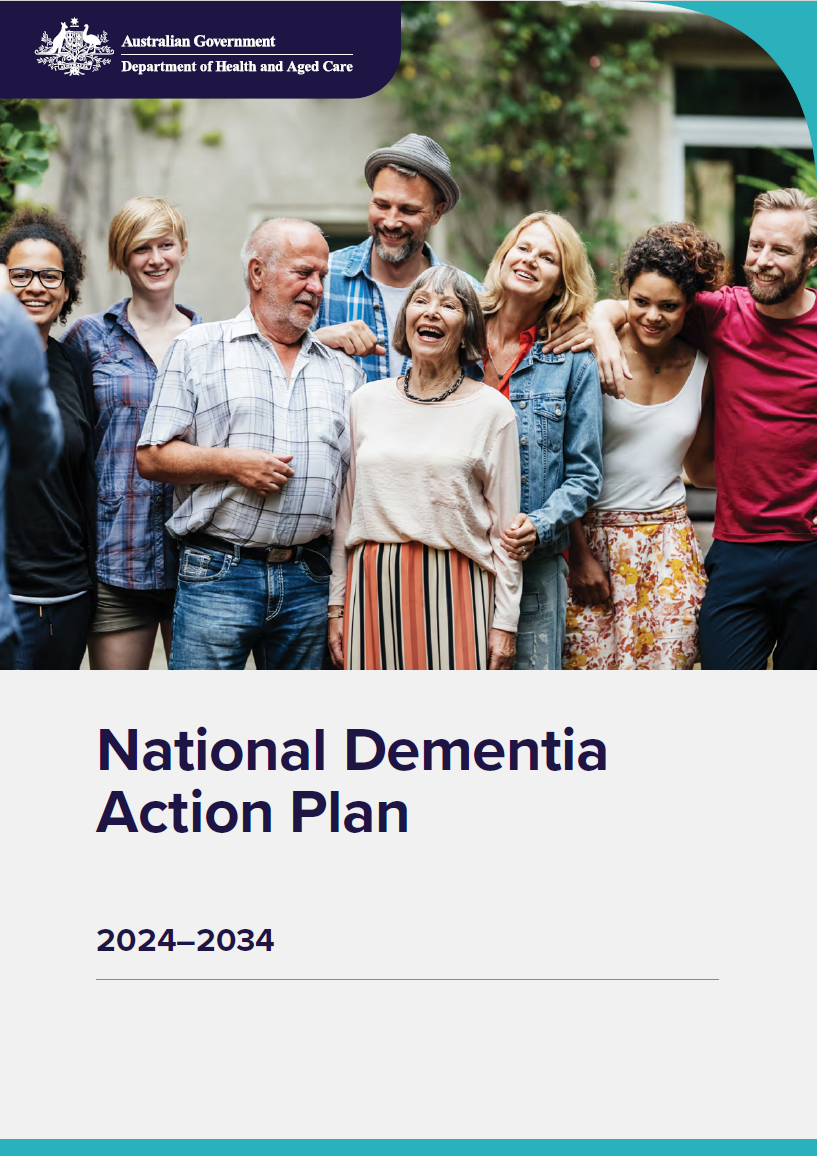
National Dementia Action Plan 2024–2034
The National Dementia Action Plan 2024–2034 is Australia’s national dementia policy framework. It aims to improve the lives and care of people living with dementia, their carers and families over the next 10 years. -
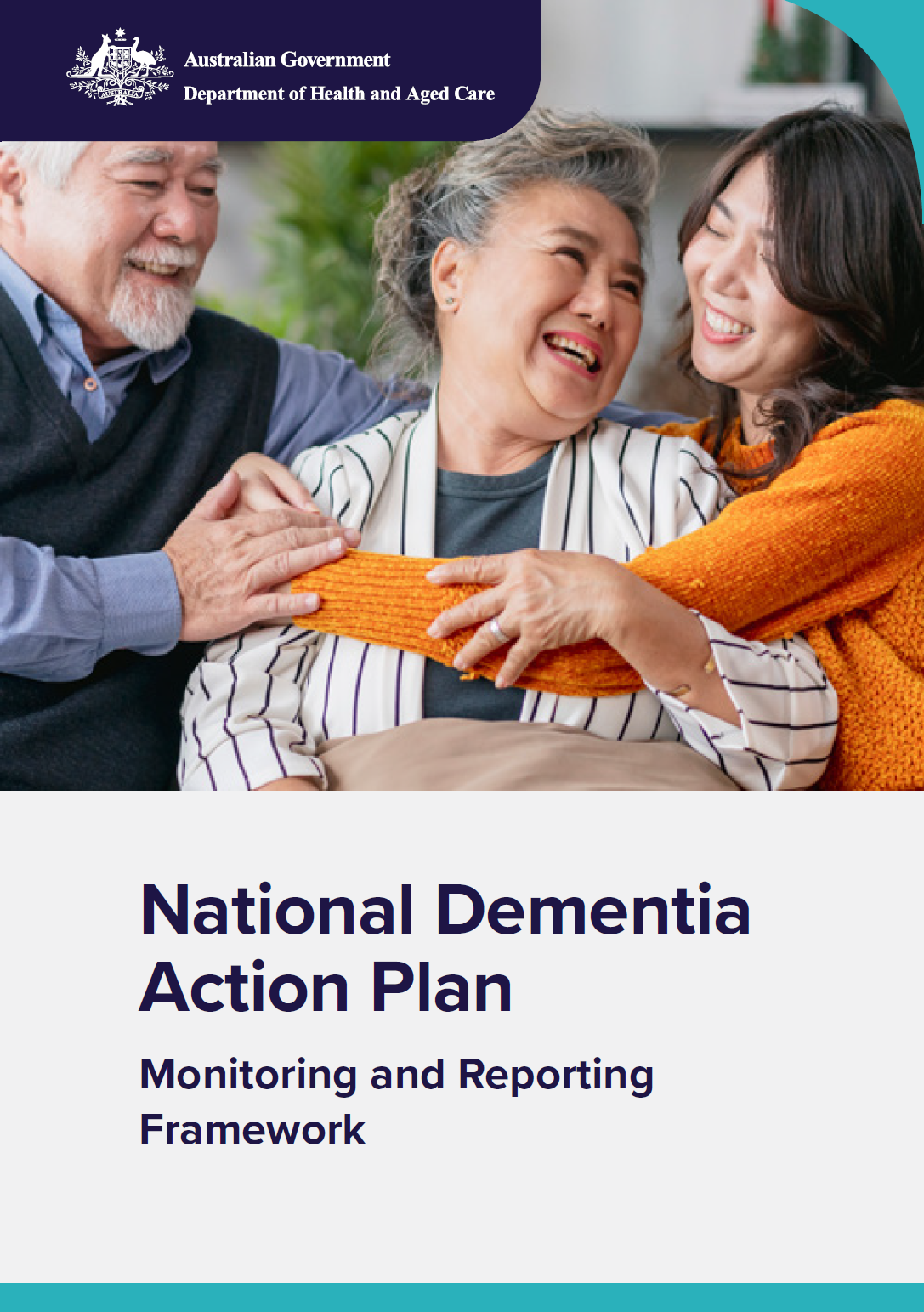
National Dementia Action Plan Monitoring and Reporting Framework
A framework that outlines how Australian, state and territory governments will monitor and report progress on the 8 high-level actions in the National Dementia Action Plan 2024–2034. -
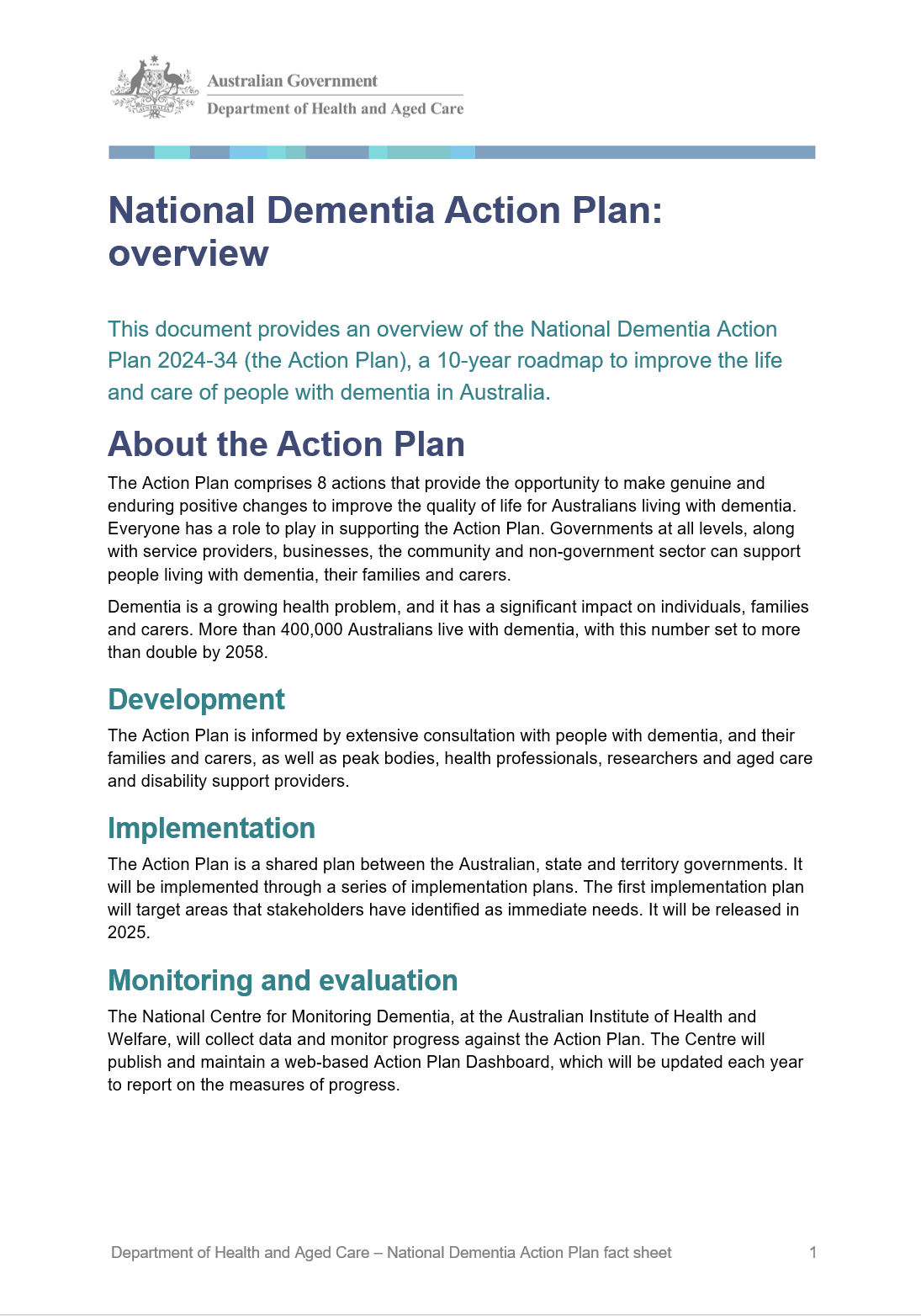
National Dementia Action Plan Overview
An overview of the National Dementia Action Plan 2024–2034, including a summary and 8 high-level actions. -
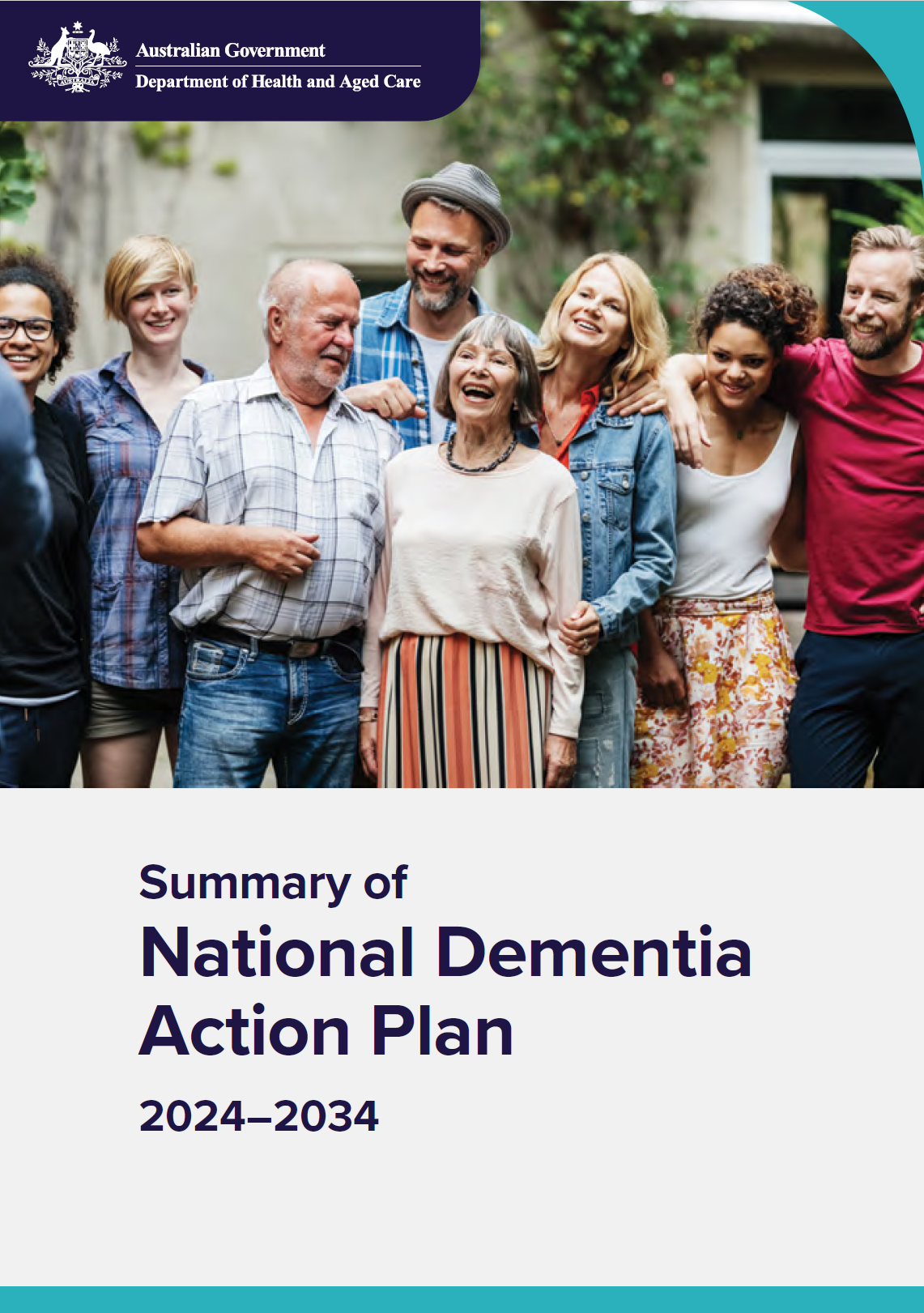
Summary of National Dementia Action Plan 2024–2034
A summary of the vision, purpose and actions contained in the National Dementia Action Plan 2024–2034. -
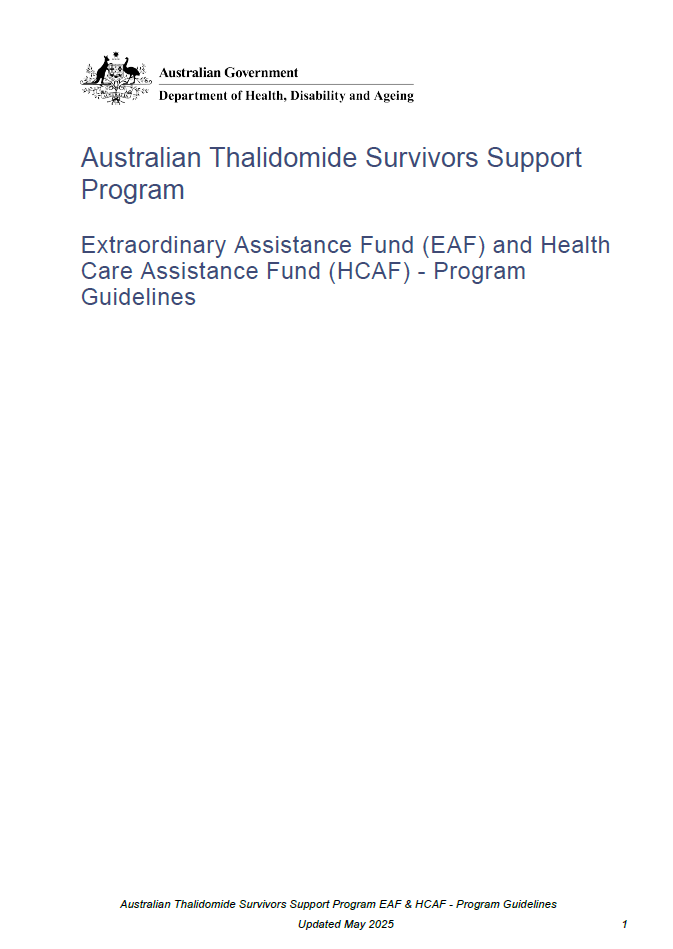
Australian Thalidomide Survivors Support Program – EAF and HCAF guidelines
These guidelines contain the requirements to access support from the Extraordinary Assistance Fund (EAF) and Health Care Assistance Fund (HCAF) under the Australian Thalidomide Survivors Support Program. -
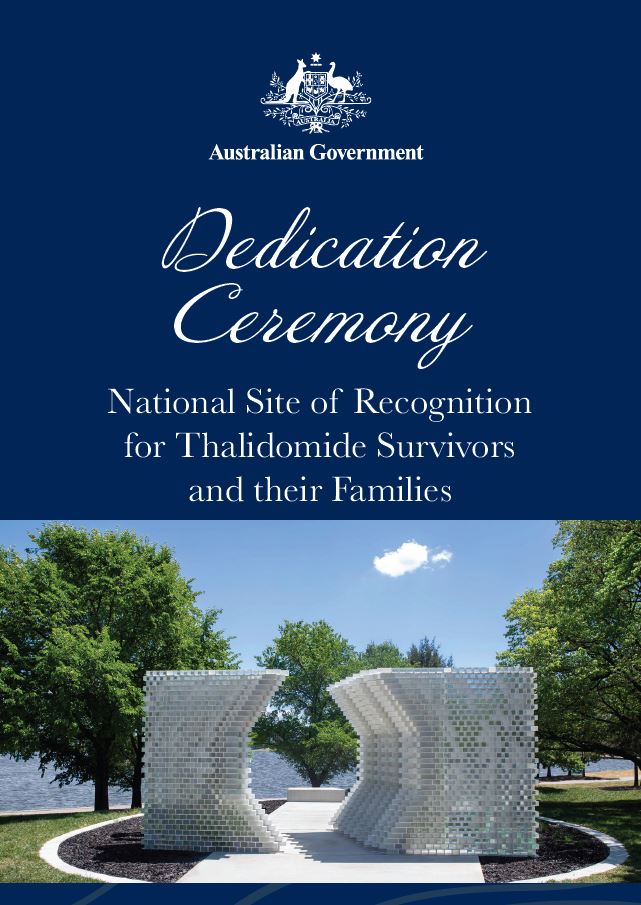
Dedication Ceremony for the National Site of Recognition for Thalidomide and their Families – Program Booklet
The National Site of Recognition was dedicated by the Minister for Health and Aged Care, along with thalidomide survivors and their families, on 30 November 2023. This is the program booklet from the ceremony. -
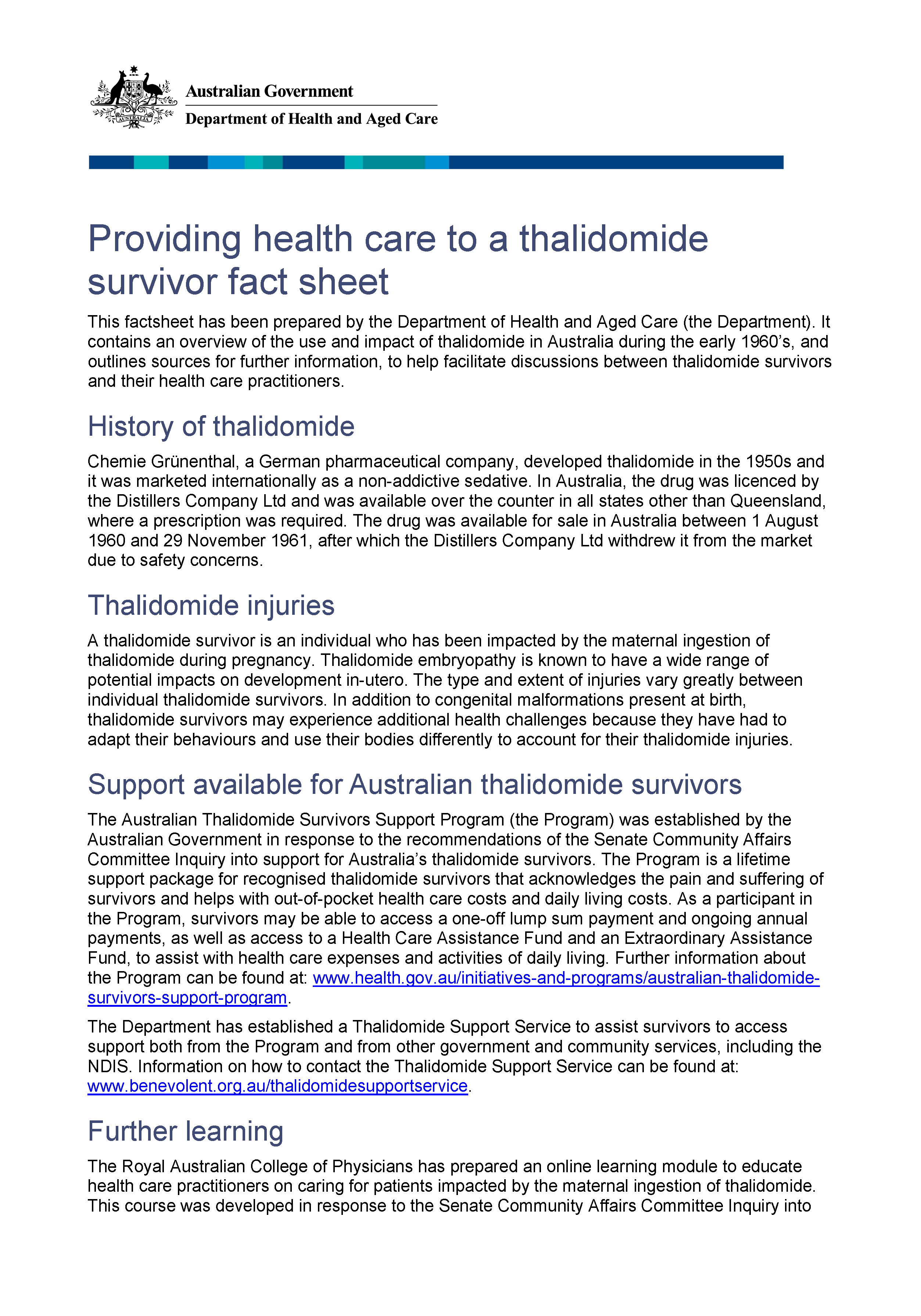
Providing health care to a thalidomide survivor fact sheet
This fact sheet is designed to help facilitate discussions between thalidomide survivors and their health care practitioners. -
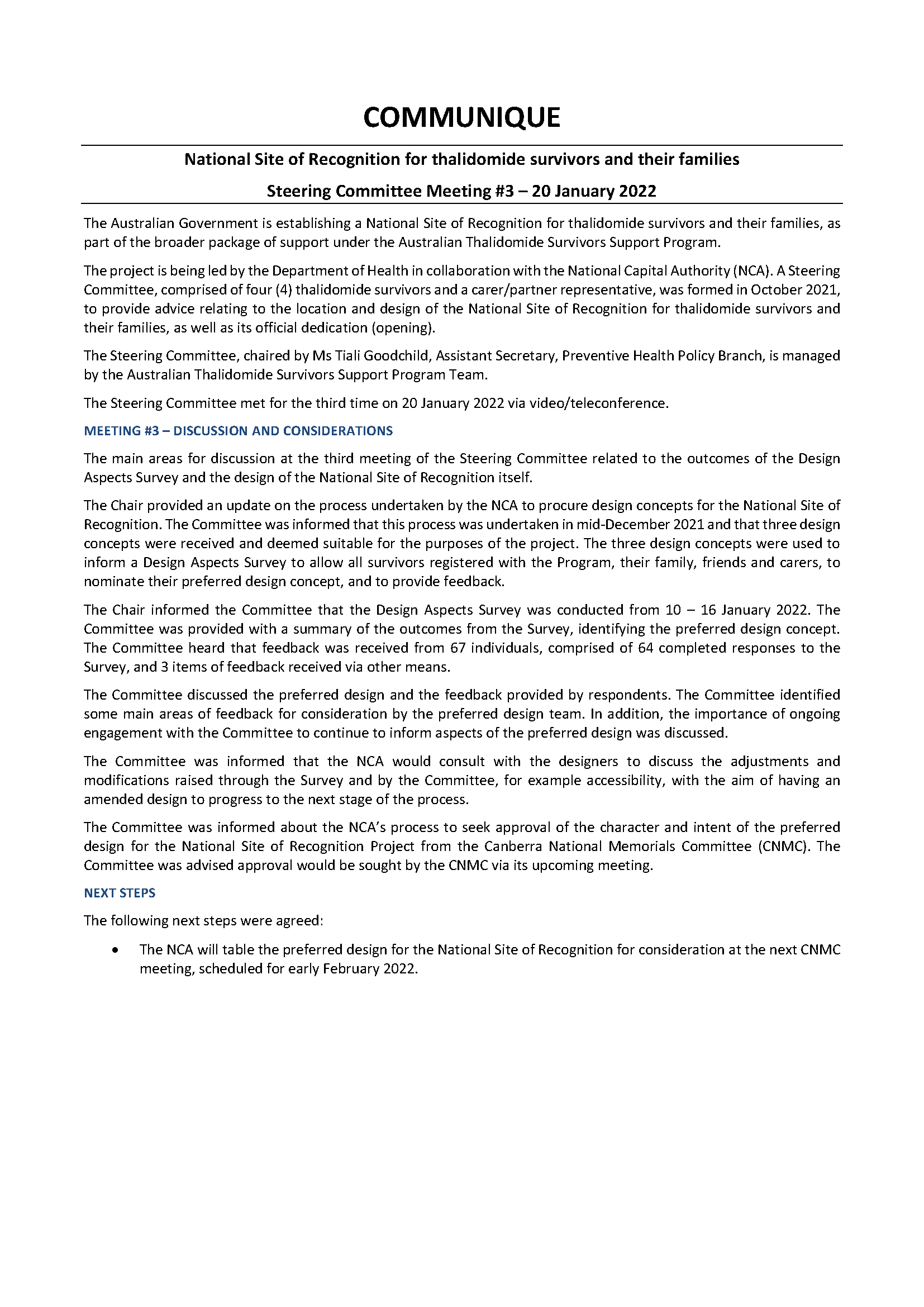
National Site of Recognition Steering Committee communique – 20 January 2022
This communique outlines the main points from discussion from the National Site of Recognition Steering Committee meeting including the next steps in the development of the National Site of Recognition for thalidomide survivors and their families. -
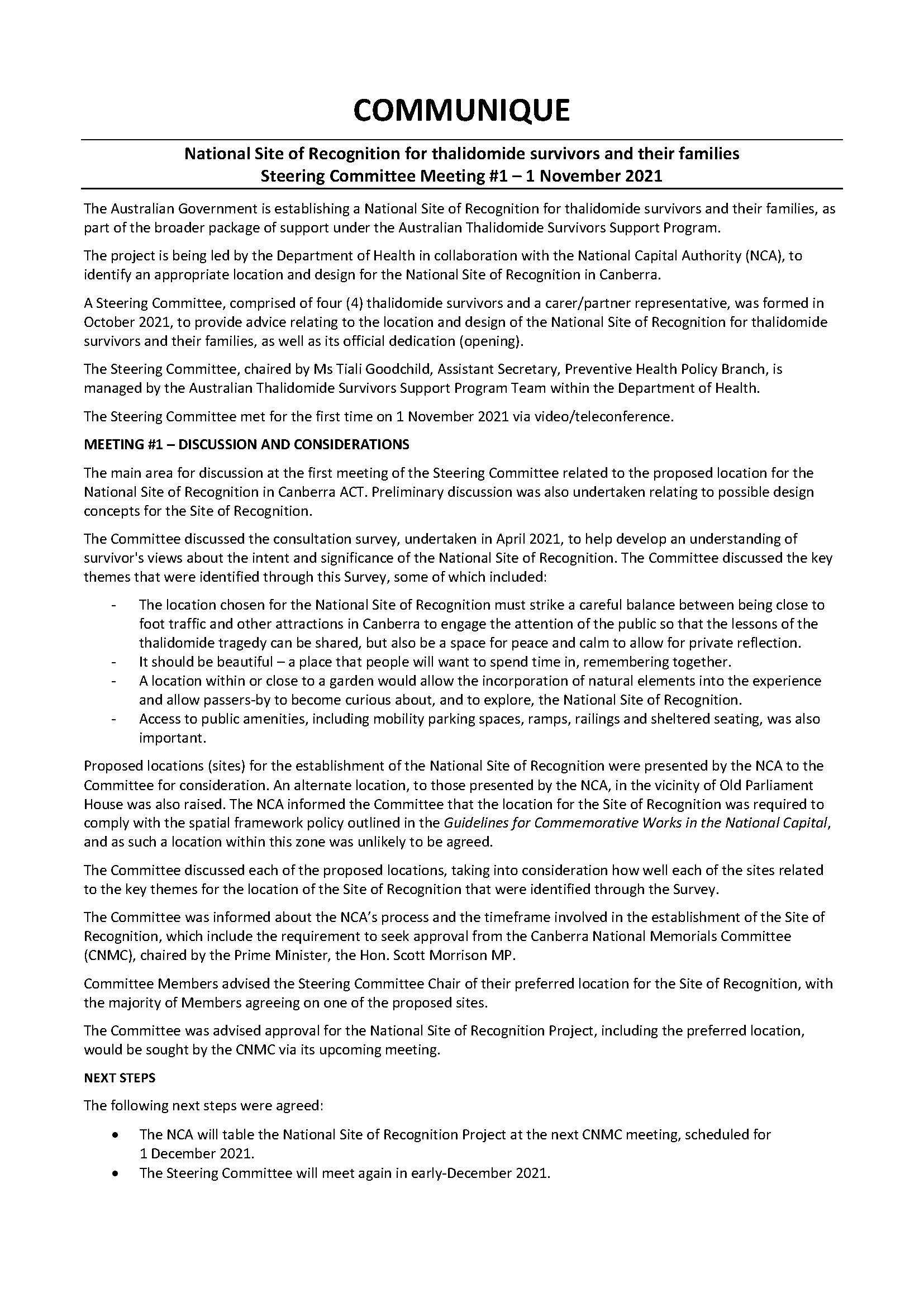
National Site of Recognition Steering Committee communique – 1 November 2021
Details of the meeting of the National Site of Recognition for thalidomide survivors and their families Steering Committee held on 1 November 2021. -
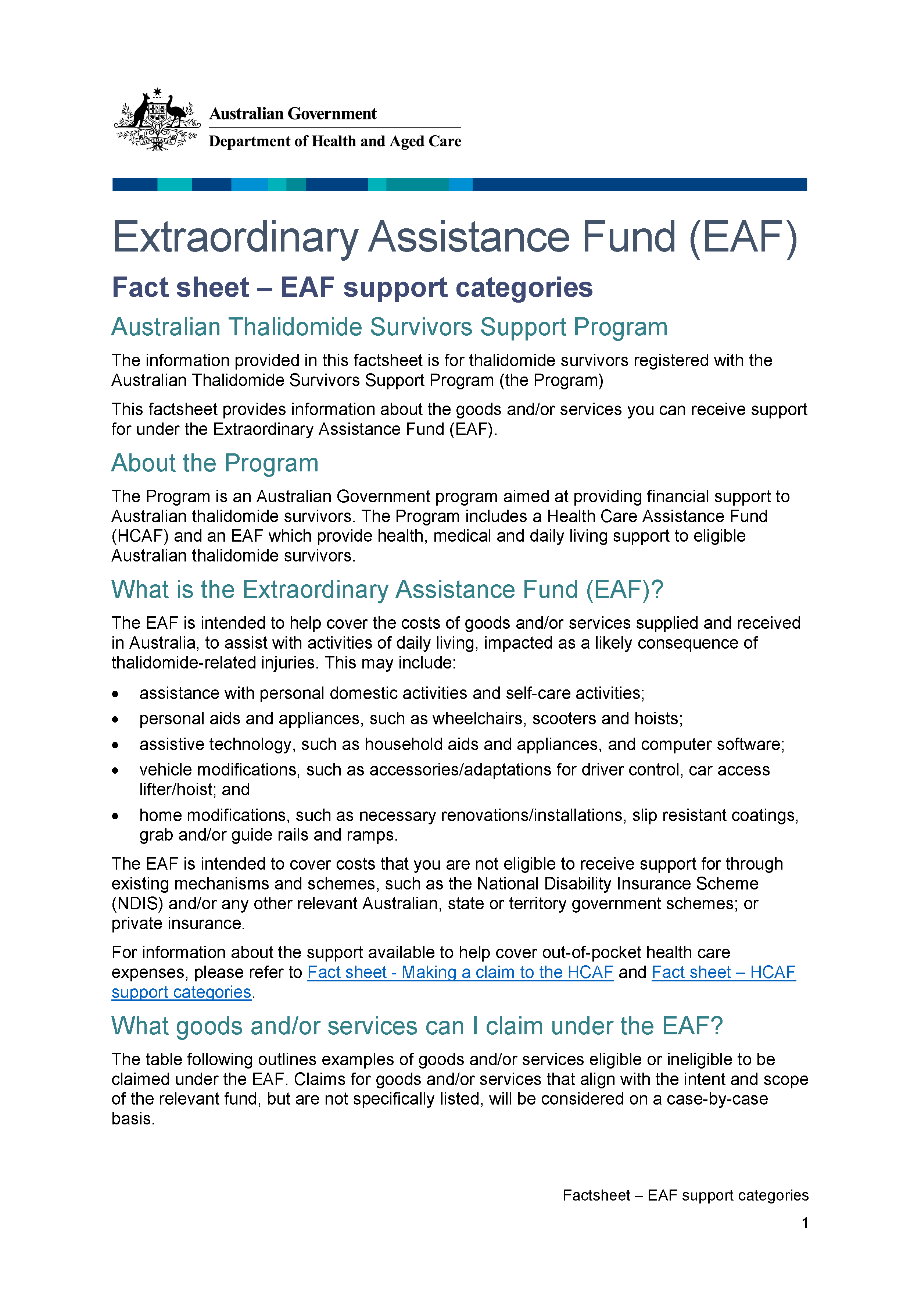
EAF support categories fact sheet
This fact sheet provides information for participants of the Australian Thalidomide Survivors Support Program about the categories of goods and services which are eligible to be claimed under the Extraordinary Assistance Fund (EAF). -
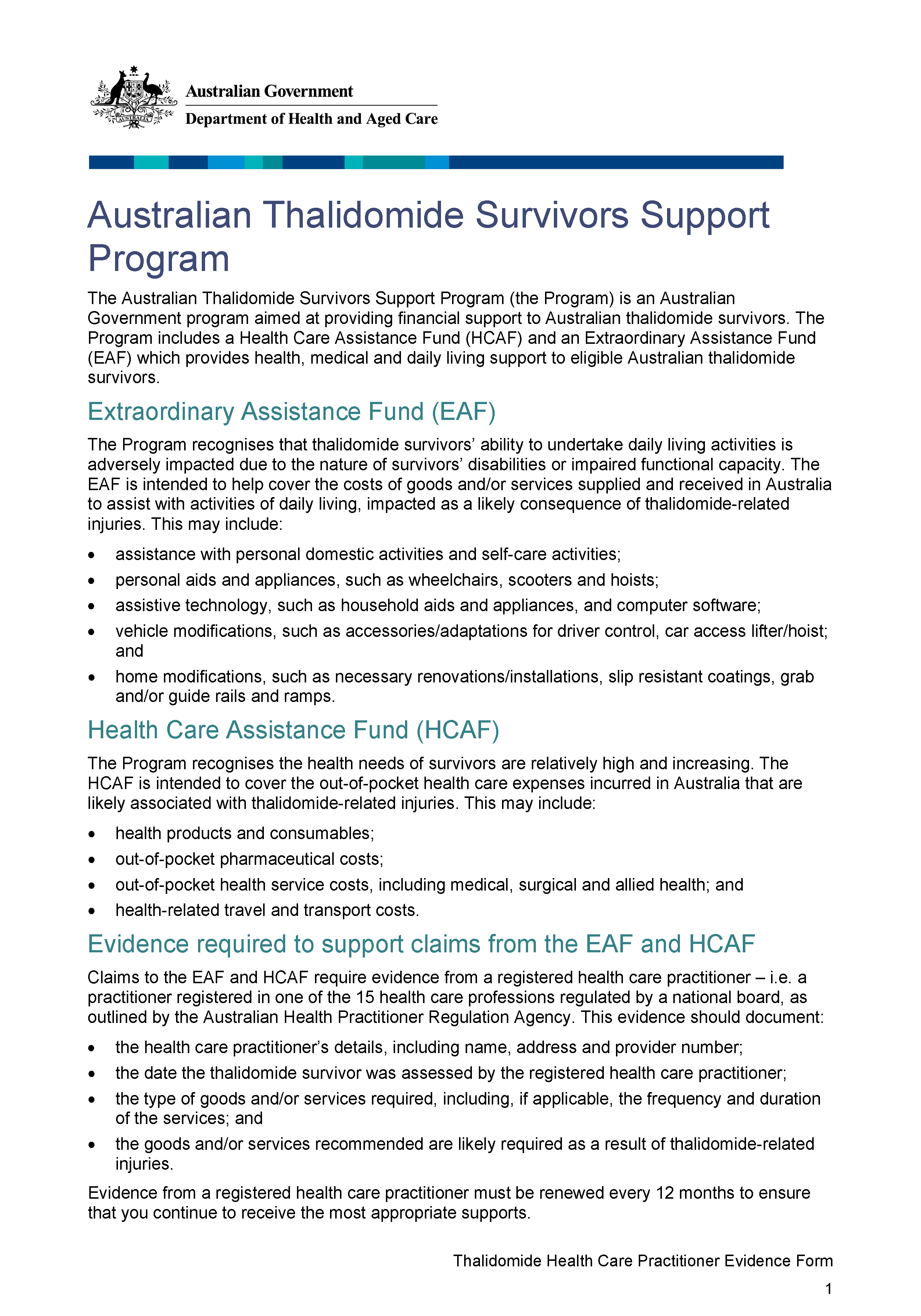
Thalidomide health practitioner evidence form
This form is a template for health practitioners to provide evidence to support an eligible thalidomide survivor (patient) to receive support from the Extraordinary Assistance Fund (EAF) or the Health Care Assistance Fund (HCAF).
-
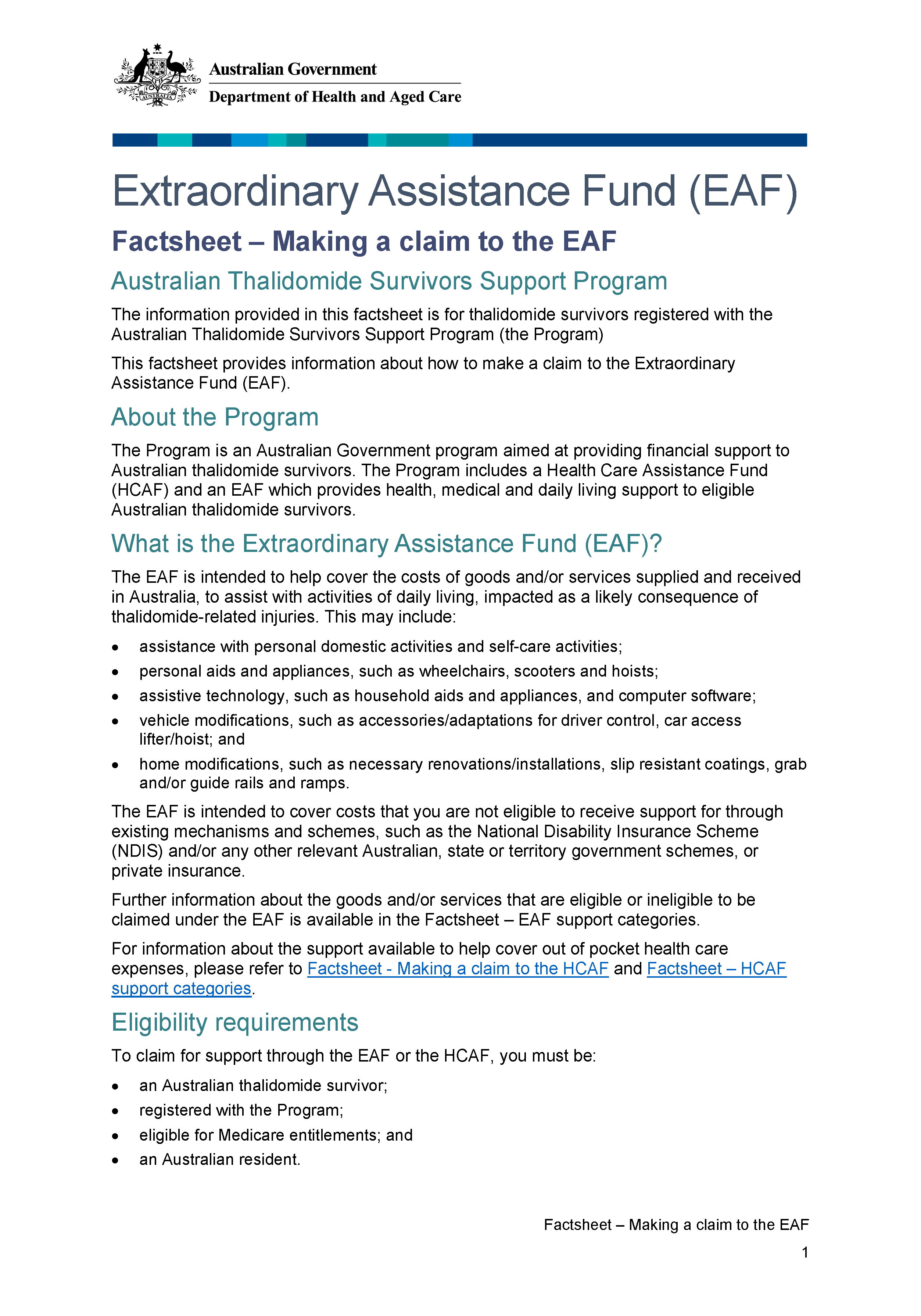
Making a claim to the EAF fact sheet
This fact sheet provides information about how participants of the Australian Thalidomide Survivors Support Program can make a claim to the Extraordinary Assistance Fund (EAF). The EAF helps cover the costs of goods and services to assist with activities of daily living. -
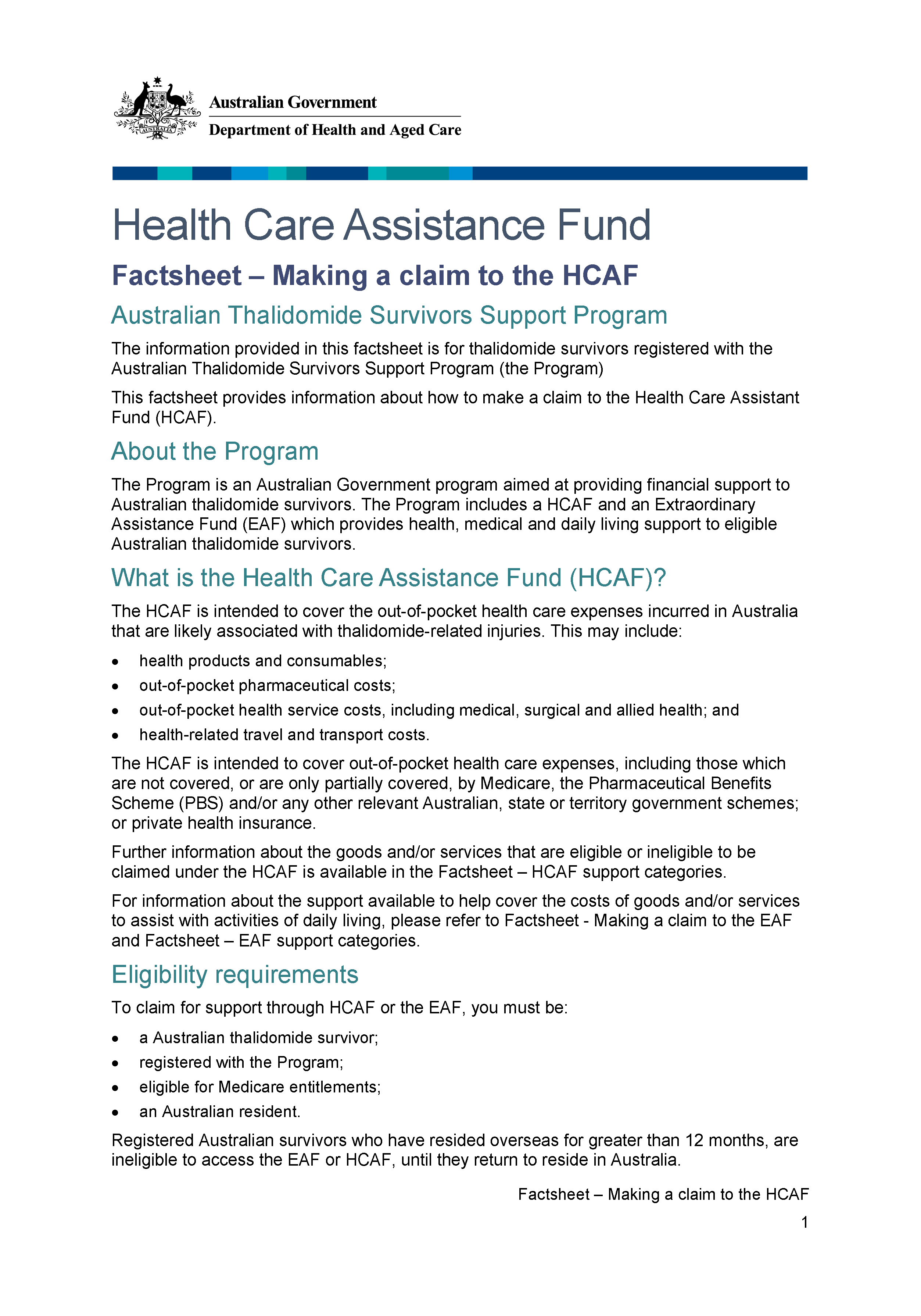
Making a claim to the HCAF fact sheet
This fact sheet provides information about how participants of the Australian Thalidomide Survivors Support Program can make a claim to the Health Care Assistance Fund (HCAF). The HCAF helps cover out-of-pocket health care expenses incurred as a direct result of thalidomide injuries. -
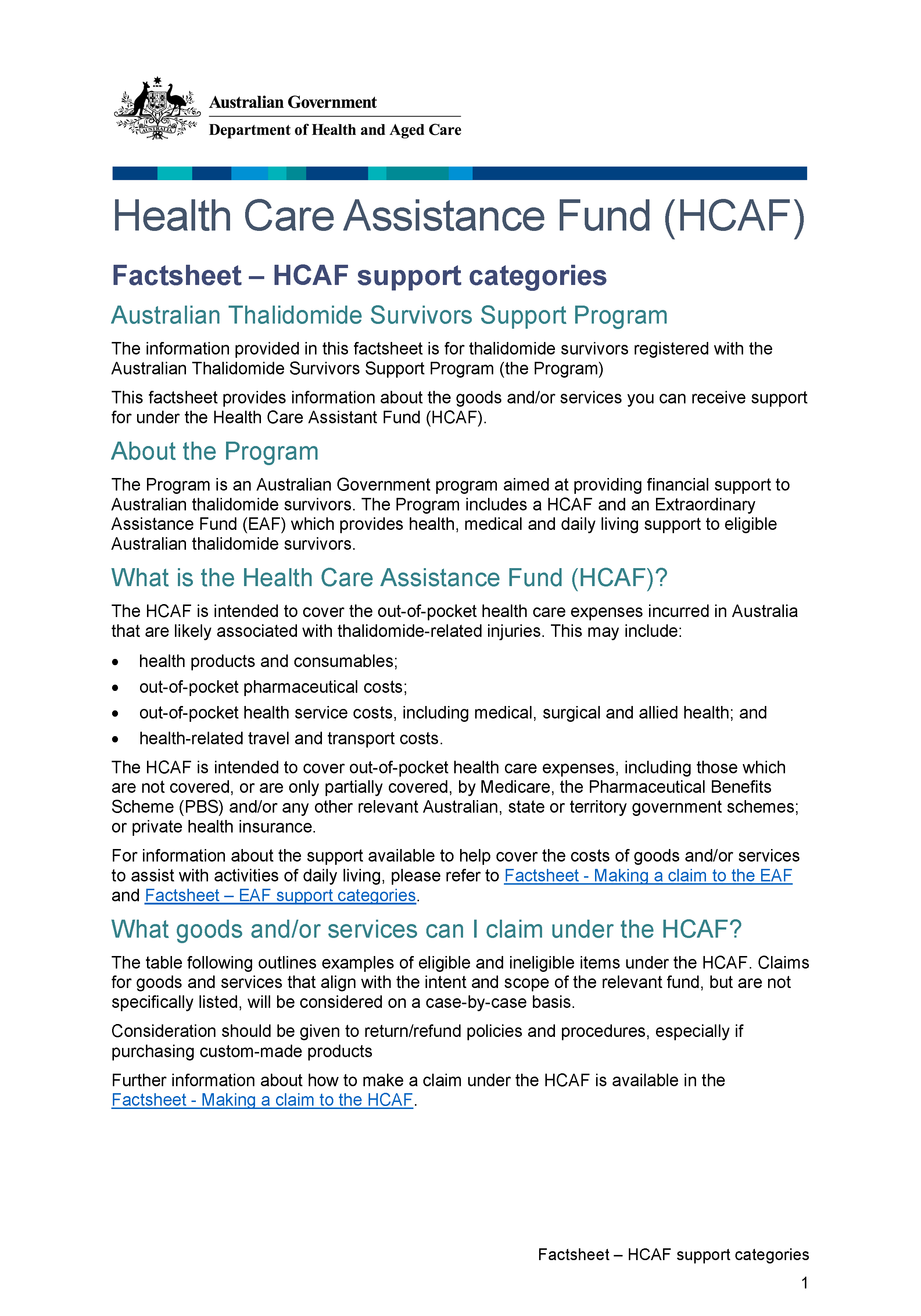
HCAF support categories fact sheet
This fact sheet provides information for participants of the Australian Thalidomide Survivors Support Program about the categories of goods and services which are eligible to be claimed under the Health Care Assistance Fund (HCAF). -
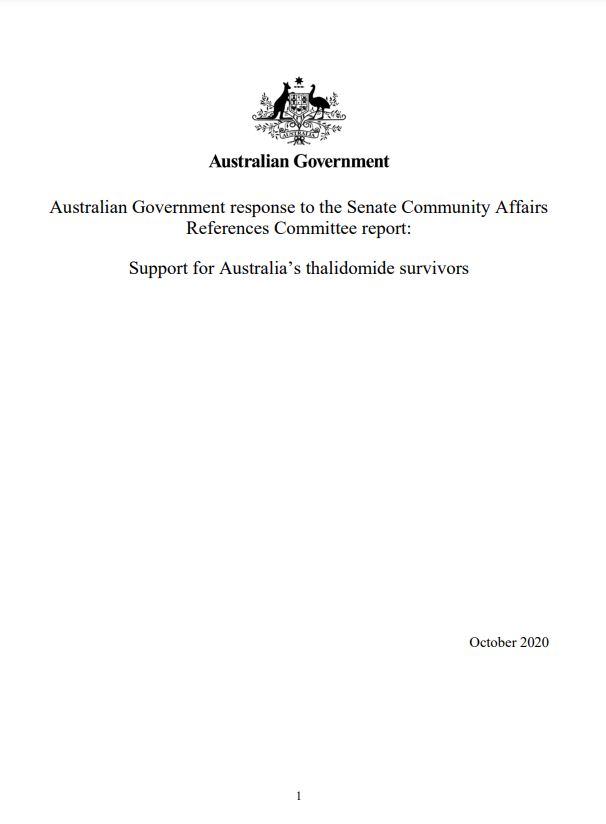
Support for Australia’s thalidomide survivors
Australian Government response to the Senate Community Affairs References Committee inquiry into support for Australia’s thalidomide survivors
